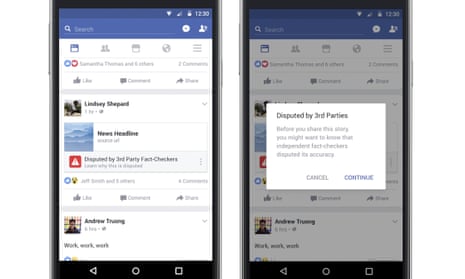Facebook has hired former CNN anchor Campbell Brown to help build better relations with news organizations in the wake of the fake news scandal.
The social media giant already has a team of staff to liaise with media within the markets it operates but Brown – an Emmy-winning TV veteran who also worked at NBC – at will lead this team, reporting into Nick Grudin, vice-president of media partnerships.
“I will be tapping my newsroom experience to help news organizations and journalist work more closely and more effectively with Facebook,” she said, announcing the news on her Facebook page.
“Right now we are watching massive transformation take place in the news business – both in the way people consume news and in the way reporters disseminate news. Facebook is a major part of this transformation.”
The social network has been under pressure to take more responsibility for the content that’s distributed on the platform since it has become one of the main ways many people get their news.
Facebook came under fire for failing to tackle the spread of misinformation on its network, particularly the “fake news” created by Macedonian teenagers and other entrepreneurs to appeal to people’s political biases in the run-up to the US presidential election. As a response, the company started flagging fake news stories with the help of users and third party fact checking organizations.
At the same time the social network has been accused of censorship for deleting from the site an iconic Vietnam war photo, nicknamed “Napalm girl”, for showing child nudity. The company overturned the decision, but not before engaging in a very public squabble with the editor of the Norwegian newspaper, whose journalist first posted the image, and the prime minister of Norway.
Despite these challenges and demands from critics for some sort of “public editor”, Facebook insists that Brown won’t be making any editorial decisions about content. (Facebook’s founder Mark Zuckerberg has cautioned against the company becoming an arbiter of truth.)
Instead, Brown will be building bridges between news media and the social networking site.
News organizations increasingly rely on Facebook, which has 1.79 billion users, as a distribution channel. Meanwhile Facebook needs high-quality content to keep its users entertained and informed, which in turn generates advertising revenue for the platform.
Facebook has been working closely with media companies to drive the adoption of video streaming tool Facebook Live and Instant Articles, but media companies fear the deal they’ve struck is one-sided. At a time when traditional media companies are making layoffs, Facebook and Google are thriving, taking the lion’s share of online advertising revenue. One analyst estimated that in 2016 alone Facebook sucked more than $1bn from the newspaper industry.
“I will be working directly with our partners to help them understand how Facebook can expand the reach of their journalism, and contribute value to their businesses. That also means making sure there is ongoing feedback from publishers as Facebook develops new products and tools for news organizations,” said Brown.
Some critics argue that the appointment is an attempt to please news organizations at a time when they are questioning their relationship with their powerful frenemy.
Jessica Rovello, CEO of Arkadium, which creates tools to help publishers keep readers on their websites, described the hire as “window-dressing on the larger problem”.
“It doesn’t move them in the direction of solving their fake news issue. The role seems to be to placate the publishers whose lunch they’re eating.”

Comments (…)
Sign in or create your Guardian account to join the discussion